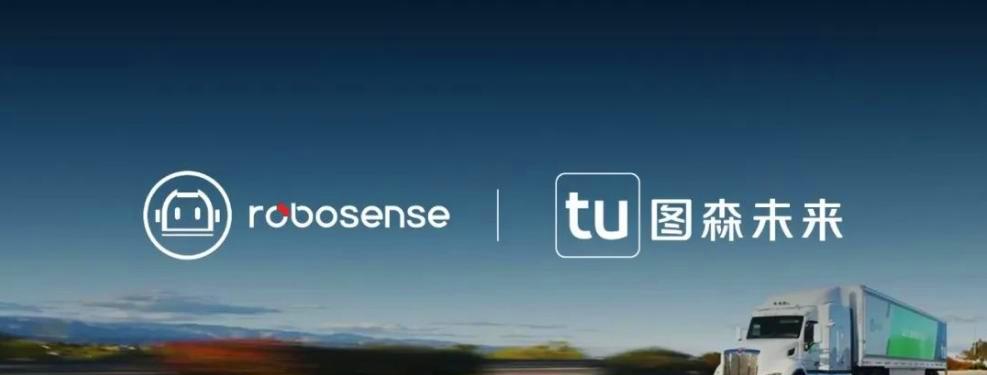Let's take stock of what major events happened in the automotive circle on April 17, 2022.
Automotive Incident 1: RoboSense and Tucson Future reach a strategic partnership
We learned that RoboSense and Tucson have reached a strategic cooperation in the future, and the two sides will focus on the deployment of the second generation of intelligent solid-state lidar RS-LiDAR-M1 (referred to as M1) L2 and L4 self-driving truck front-loading fixed-point projects.

It is reported that the two companies will focus on the large-scale mass production of advanced assisted driving (ADAS) and autonomous driving (AD) systems, explore high-performance, vehicle-grade, front-loading mass-produced lidar fusion perception solutions in logistics and freight scenarios, and promote the commercial operation and large-scale expansion of Tucson's future autonomous truck and unmanned freight logistics network.
Automobile incident two: Guangzhou: Electric vehicle charging and replacing facilities must not be refused to use electricity
Guangzhou's proposed legislation stipulates that new residential areas should meet the conditions for the construction and installation of electric vehicle charging infrastructure, requires that power supply (distribution) enterprises must not delay or refuse applications for electricity consumption of electric vehicle charging and replacement facilities, and Guangzhou, which is building a "smart car city", accelerates the innovation and development of intelligent and new energy vehicles.
The Guangzhou Regulations on Electricity Supply and Consumption (Draft for Solicitation of Comments) (hereinafter referred to as the Regulations) are now open to the public for comments, and an important innovation is to promote the development of new types of electricity supply and consumption industries.
Article 13 of the Regulations stipulates that newly built residential areas shall meet the conditions for the allocation and installation of electric vehicle charging infrastructure. Article 31 stipulates that power supply (distribution) enterprises shall not delay or refuse the application for the use of electricity and grid connection of new types of power supply facilities and equipment such as electric vehicle charging and replacement facilities, and it is strictly forbidden to collect or covertly collect electricity service fees。
Another innovation of the Regulations is to highlight the optimization of the business environment for electricity consumption. At the beginning of the formulation, in addition to relevant laws and regulations, the formulation basis also referred to the "Opinions of the National Development and Reform Commission and the National Energy Administration on Comprehensively Improving the Service Level of "Access to Electricity" and Continuously Optimizing the Business Environment for Electricity Consumption" and other policy documents.
Article 29 of the Regulations stipulates that electricity supply (distribution) enterprises shall promote the application of electronic signatures, electronic certificates and licenses, reduce the links, time and cost of using telegraphs, and optimize the business environment for telegraph installation services and electricity consumption. Among them, it is specifically clarified that Guangzhou City implements the administrative exemption service for low-voltage users' power external line projects; in the construction of power external line projects, the time for low-voltage residential users to obtain electricity shall not exceed three working days, the time for low-voltage non-resident users to obtain electricity shall not exceed seven working days, and the time for high-voltage power users with construction conditions shall not exceed 45 working days.
In addition, the Regulations also stipulate that the use of unmanned aerial vehicles in the protection zone of electric power facilities is prohibited, and the electricity consumption of residents is given priority during periods of tight power supply.
The Regulations are the official project of the 2022 legislative work plan of the Standing Committee of the Guangzhou Municipal People's Congress, drafted by the Guangzhou Municipal Bureau of Industry and Information Technology, with a total of six chapters and 50 articles, including general provisions, planning and construction of power supply facilities, management and protection of power facilities, power supply and use, legal liability and other contents.
Guangzhou is the first city in the country to promulgate and implement local government regulations on electric power, and promulgated and implemented the Regulations on the Administration of Power Supply and Electricity Consumption in Guangzhou in 2008, which was revised three times in 2015, 2018 and 2019.
Automotive Event Three: BorgWarner develops next-generation fast-charging systems
It has been reported that BorgWarner received a $4.09 million grant from the U.S. Department of Energy to develop a cost-effective next-generation modular DC fast charger. The three-year project is one of 25 R&D demonstration projects from the U.S. Department of Energy. These projects aim to advance electrification, reduce vehicle emissions and improve electric vehicle charging infrastructure.
BorgWarner will work with U.S. suppliers and research partners, including Michigan State University, Duke Energy subsidiary eTransEnergy, consulting firm Cityfi, Michigan, and design and construction firm Barton Marlow. It is also supported by components from Silicon Carbide chip supplier Wolfspeed.
Auto Incident Four: Hyundai recalls 54 Nexo hydrogen fuel cell vehicles overseas
A few days ago, we learned that Hyundai recalled 54 Nexo hydrogen fuel cell vehicles in overseas markets, and it is reported that the new car has a risk of hydrogen fuel leakage, which may cause fire.
The recalled Hyundai Nexo was manufactured from August 10 to December 17, 2018 and involved a total of 54 vehicle models. It is worth mentioning that a 2019 Hyundai Nexo caught fire at a hydrogen refueling station in South Korea on March 16, 2022, which was caused by the material shedding from the fuel entrance and the leakage of hydrogen.
"Car News of the Day", here is the latest car news of the day, please continue to pay attention to "The Way to Know the Car".